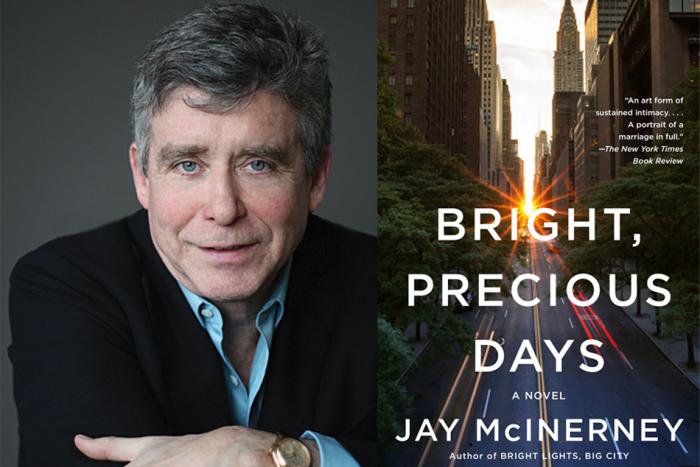My job was to show up, look good, and entertain the mystery man behind the hotel room door, which, thankfully, I mostly found fun and easy. Married business men were the usual clientele, and there was always plenty to talk about. Conversation was the gateway to sex. If I could connect to a man, if we could make each other laugh, or if we had common interests, I would have no qualms about having sex with him; that’s what I was there to do, after all. In fact, having learnt a bit about his mind, I wanted to know his body. How it moved, how he fucked. Truly, a jolly time was had by all. And I was making a ridiculous amount of money, too.
—Andrea Werhun, author of Modern Whore
A few years ago, I wrote three hundred pages of a Depressing Novel about a sex worker. Though the story began in Thailand, during her childhood, it opened on her present-day adult life and work as a high-end escort servicing wealthy businessmen and oil executives in Calgary. Her present work was complexly linked to the traumatic experiences she’d had as a child and adolescent. But the narrative arc kept springing awry, like a segmented tent pole on a windy day; you know the kind, with elastic cord stretched tight inside. The tension—sproing!—between my fictional story and the true stories that sex workers kept telling me was too much. The more I wrote her, the less true my character became.
To be honest, this did not surprise me. This sad adult character, with her weighty childhood memories, wasn’t based in truth. She was a lie.
I had relatives and friends who were or had been in the sex trade. These women were real; they were honest about their work, which had its difficulties, especially for those who had worked the street. But their lives had never been anything like the sombre, wordy drama my novel was becoming. Beyond their specialized work, these women’s lives were “normal,” whatever that means. When it came to their jobs, they were like labouring human beings all over the world. They wanted safe working conditions, good healthcare, and legal protection of their basic human rights. Some of them had been hurt by their clients, or their families, or the police; some of them had never met an abusive client and had worked quietly out of condo buildings their entire careers. One thing they had in common was how profoundly tired they were of other people’s disrespect, hatred, and miscomprehension when it came to them and their livelihoods. All of them supported complete decriminalization of sex work.
For the past couple thousand years, most societies have pathologized sex work and have responded to sex workers in moralistic, punitive, and violent ways. I grew up in a Christian fundamentalist religion, where only married heterosexuals were allowed to have sex; everything else was disgusting and bad, the pathway to annihilation. As a child, I learned that if I masturbated or had sex before marriage, God was going to kill me. He would kill anyone who did any bad sexual thing, especially women. This was borne out in biblical stories, of course: most of the sexually transgressive women in the Bible come to tragic ends.
However, a couple years before the execution threats, I’d snuggled in front of the TV with my older sister. I was eight; I did not yet know what sex was. We watched a scantily clad dancer on screen twist acrobatically around a pole. An aspiring gymnast myself, I was delighted. She was beautiful, but already blurring into the background as loud powerful men took over the scene. No doubt the movie revolved around them as surely as the stripper revolved around her pole. A moment later, and she had completely disappeared from view—in hindsight, an important first lesson about how the usual storylines of our culture make sex workers invisible.
I asked my older sister what the woman had been doing. “Taking off her clothes. For money! She’s a stripper.” Terrible, thrilling word. I felt its import and power—look what she could do on that pole!—without understanding what it all meant. But the power of that half-naked woman remained with me, as certain as the power of the vengeful Christian god who was soon to take over my young mind and body.
*
Any deep study of history, myth, and etymology confirm they’re all of a piece: the naked woman and the god, the goddess and the naked man, the sacred and the profane. They’re braided together, woven back through time to ancient fertility cults that honoured the awesome and mysterious generative powers of both male and female sexualities.
One root for the word “whore” finds its origins in the name of one of the earliest ancient goddesses, Xar, or Kar, whose name meant desire, heart, beloved—she who stands at the heart of the world. Cardia in Greek, meaning heart, is still a term of endearment, just as cuore is in Italian, and carino in Spanish means beloved. As Kar was absorbed by Greek culture, a further derivation of her name is possibly xora, for dance, after the ritualistic routines the attendants of the earliest temples would perform. Xora is closely related to ora, for time and hour; the dances themselves marked the seasons and times of the temples. Priestesses and their attendants sometimes had sex with worshippers in exchange for offerings to the temple; some participated in orgiastic fertility rites. Over a thousand years, as monotheistic, masculine-god religions established themselves, so-called “pagan” temples were destroyed or transformed into the churches, synagogues and mosques of the “one true God.” The temple attendants and priestesses were forced out of these repurposed holy places. Unhoused, no longer holy, they became some of the first street-walking sex workers in history.
Many languages (Greek, Spanish, Italian, Hebrew, Arabic, Turkish, German, French, Russian, to name but a few) all contain variations on the words ora, horo, hora. They mean, variously, time, hour, dance, and whore.
Working with customers as a barista or waitress, I quickly realized that service with a smile—in conjunction with a plunging neckline—guaranteed a top gratuity, especially from men ... They wanted to feel wanted. With every grin ... and tasteful boobie jiggle, another toonie dropped into the tip jar. One day, it occurred to me that I was using my sexuality, my beauty, and my youth to make money. But I was making minimum wage, subtly squeezing my tits together for pocket change. I knew these guys wanted to have sex with me, so I thought, Why not, then? Why not get straight to the point and have sex with them for money? Why degrade myself and live under the poverty line when I could "degrade" myself and live like a queen?
—Andrea Werhun
As the seasons changed, so did my novel. I dropped the tragic sex-worker character, and, given permission by talking with women who made their livings with their sexuality (and their charm, and intelligence, and open-mindedness), I started thinking more about the role of sex in my own life: who it made me, how it delighted me, how my sex life had changed over the years. I started writing a new book, with women characters who were essentially happy and healthy, deeply engaged in life, and interested—surprise!—in sex.
One of those characters is a sex worker in her thirties, who is slowly transitioning out of the industry, getting close to working as a psychologist who specializes in sex therapy. But she has anxiety about that coming change in her life; she knows she will miss her first career. I wanted to show that many sex workers love doing what they do. Everyone I talked to during the course of my research wanted to be in the sex trade. They liked using their bodies in various sexual ways in exchange for payment. More than one of them laughed at that pitying formulation, “she sells her body for money.” Marissa, a worker in her forties, told me, “If I were selling a kidney, or an ovary, sure, I’d be selling my body for money. And big fucking deal, it’s my body. Nobody gets all insulting and pissy if you donate a kidney to someone who’s dying, right? So what’s the big deal about sucking a guy’s cock or doing it doggy-style in a slutty bustier?” She laughed; I observed that she might consider a career in standup comedy. “No way, it doesn’t pay well enough. Besides, I’m serious! Sex work is a lot safer, technically speaking, than donating a kidney. It does nothing negative or harmful to my body and sometimes it’s even fun. That’s all I sell: my time, my expertise. I take my whole body with me when I leave. Just like any other person who has a job.”
These women educated me. More and more, I was reading their blogs and websites. Still, I had to consciously work to root out cultural, societal, religious and even feminist notions about who did sex work and why. I had to ask the women, are you doing this because you’ve been abused? Because you’ve been coerced, in some way, even in the past?
Nathalie Lefevbre had so many clients ask her that question that she addressed it on her website, under the tab “Ask me anything.” In response to the question “Are you being exploited?” she writes:
“You’re lovely to ask. I would be equally worried about exploitation and choice in the context of sex work. As a privileged, white, able-bodied and educated young woman, this is a choice I’ve made among many equally appealing opportunities. I work full-time outside of escorting as a grad student, research assistant, and teacher’s assistant, and feel extremely fulfilled in my employment. I enjoy the interpersonal intimacy that sex brings, and companionship has brought a lot of happiness and fulfillment to my life.”
When I first contacted Nathalie and told her that I was researching Canadian sex workers’ lives, she was generous with her time and expertise. She was also politically savvy, kind-hearted, and funny. Like other sex workers I’d interviewed, her humane directness about sex combined with her youth and intelligence were attractive on various levels. I always enjoyed talking to her. After our first few interviews on the phone, I met her in person. Unsurprisingly, I was attracted to her sexually, even though she wasn’t really my type. (Flexibility is a virtue.) If my husband and I had an extra $800 to spare, she would have been a wonderful person to get naked with for a couple of hours. I understood why her reviews on CERB—the Canadian Erotic Review Board—were glowing and sweet.
“I tell clients that I enjoy physical intimacy and gentleness. Sure, things can get intense, too. But it usually takes a few dates to build up that kind of trust with someone. I’ve never had a bad experience with a client. I have a lot of privilege in the kind of sex work I do. I have the ability to stay safe. I am able to take care of myself.” She only sees clients who can offer a reference of safety from another service provider. “Not everyone can make this kind of work safe for themselves. How could they, when society and our laws still denigrate and endanger sex workers?...I offer a space for people to express themselves sexually. A lot of men—and women, too—simply don’t have that in their lives. They’re in sexless or otherwise unhappy marriages where they stay because they love their children and feel they are doing the responsible thing. Every other client I see is like that. They are often ashamed of the fact that they’re married, and seeing me. I tell them that I do not judge them, and I do not. I believe in the humanization not just of the sex worker, but of the client, of the man.”
People with histories of abuse come from all walks of life and work in all kinds of industry. Sex workers aren’t just abuse victims re-enacting their trauma over and over again for money. This fantasy infantilizes a whole swath of the sex working population without a single shred of evidence.
Why does sex work only make sense within the framework of worker victimhood? Why is the empowered, sex-work-is-real-work whore so unbelievable? A few thousand years of indoctrination against the whore has taught us a lascivious woman is damaged, not to be trusted and deserves to be abused.
—Andrea Werhun
The Depressing Novel, all three hundred pages of it, sits in the bottom drawer. I won’t be rereading it any time soon. The book that replaced it is a funny, erotic, set-in-my-neighbourhood tale called The Change Room. It features a woman character—Eliza, a busy middle-class, middle-aged working mother, like me—who in the midst of her jam-packed life meets a sexy woman named Shar at the community pool. Though Eliza truly loves her husband, there’s not much going on in the bedroom. The first time these two women meet—in the shower room, just before entering the change room—Shar plugs right into every sexual electrical socket in Eliza’s body. They quickly become lovers, and the novel follows how this and other secrets change (or do not change) the characters’ lives. (FYI: No one in this book is punished, murdered, or beaten for transgressing sexual norms.)
Shar is a sex worker, though she doesn’t tell Eliza that. She has complexities, failings, and wounds of her own, but she is not depressed, nor is she acting out some long-ago abuse. She takes good care of herself; she loves her work. She is also pursuing post-doc studies in psychology. Shar lives with that open hearted courage that I admire in real-life sex workers, even though our governments and societies leave them vulnerable to harassment and violence by refusing to decriminalize their profession. It is the defining paradox of the sex worker’s life: these fearless people—women, men, trans—are also the most willfully, callously endangered by those who want to control them.
Sex workers’ right are human rights. How many times will they have to tell their fellow citizens this before we listen to them with an equal courage, at the political level, and decriminalize sex work permanently?






